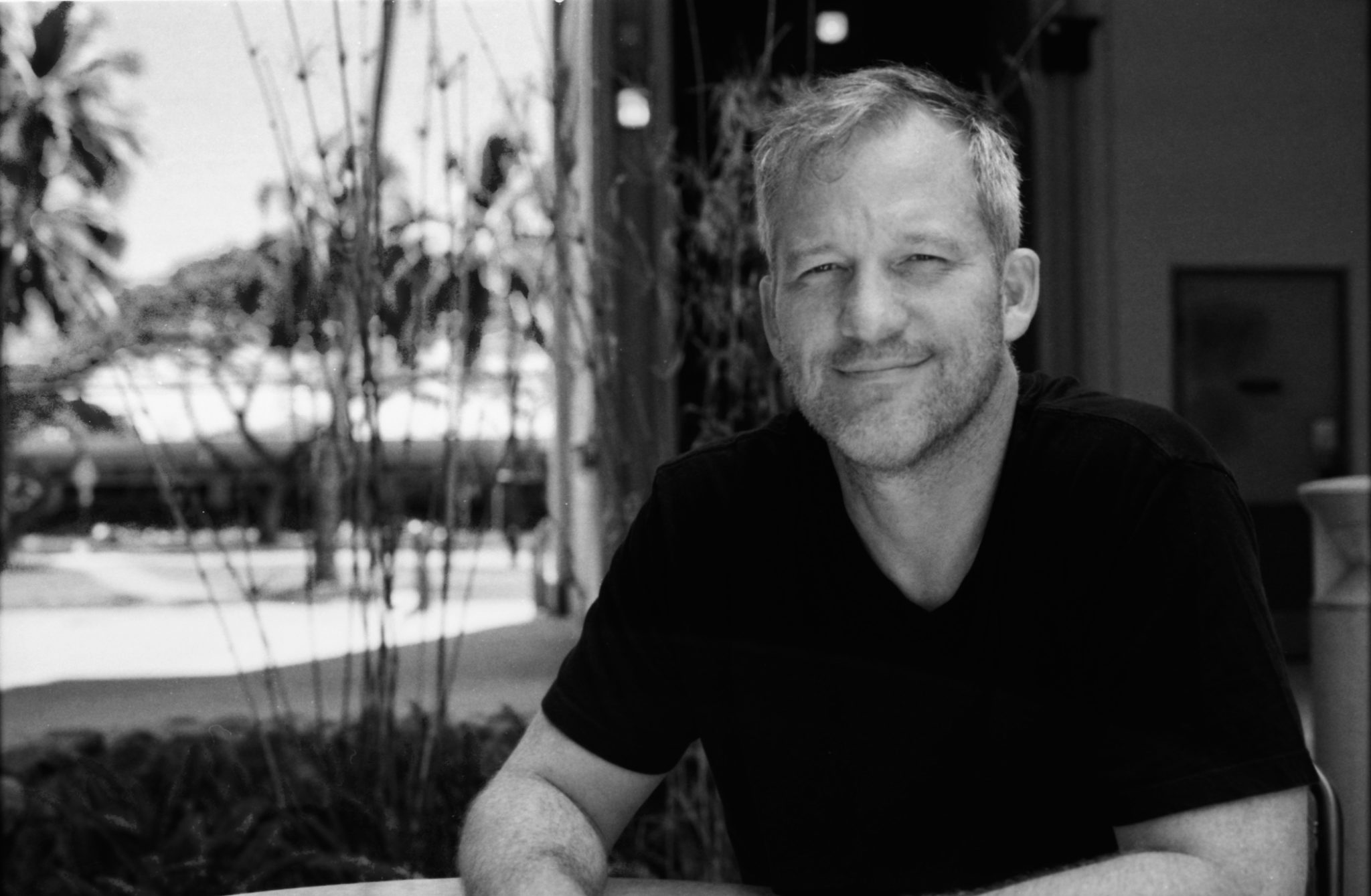Image by John Hook
For those of us who yearn to use the biggest screen of all to tell our most personal stories, Gordy Hoffman offers blockbuster-sized support. Hoffman, who scored a Sundance Film Festival award as the screenwriter of the 2002 quirky feature film Love Liza, has become best known—and some would say beloved—as the founder of the BlueCat Screenplaywriting Competition, which is dedicated to discovering and nurturing novice writers. He routinely crisscrosses the country to teach screenwriting workshops, and in September, he landed in Hawai‘i as a visiting instructor for a Pacific New Media workshop at University of Hawai‘i at Mānoa. Here, he demoed his hale and hearty style of teaching the art of screenwriting, lobbing writing exercises at the mixed bag of students before him, using zany humor to prod the shiest students into sharing. He urged everyone to face their demons—a prerequisite, he said, to letting creativity rip. And he didn’t avoid his own demons either, candidly discussing the loss of his brother, Academy Award-winning actor Philip Seymour Hoffman, who died last year of a drug overdose, and his struggle to get through the darkness and get back to scriptwriting. Here, he offers a font of wisdom for the inner screenwriter in all of us.
Why teach?
I love being of service. I end up telling people about things I don’t necessarily follow until teaching makes me more conscious of it. It’s also exciting for me to help those [unknown scriptwriters] who have something to offer the world.
You had a big turnout for your Pacific New Media workshop. Is it like this in your other screenwriting workshops?
Yes, and it’s not just me. Movies have long been the most popular form of storytelling entrenched in our culture, but now it has become a much more democratic form of storytelling. With the Internet, people can read scripts and find scriptwriting software. And then there is Kickstarter making it possible [to raise the money], and that is a whole other matter.
What do you notice as the most common obstacles for novice scriptwriters?
People shy away from more difficult emotional sequences in a story because they are ultimately more challenging and stressful. I also feel that people rely on methods expressed in books and blogs and chase what they think will be successful instead of telling a story that they really have a passion for.
You seem intent on getting us to face our own vulnerabilities as a basis for scriptwriting. Discuss this approach.
First, you’re going to be writing about dramatic conflict, because most movies are rooted in that. Audiences want to see high-stakes, complicated conflict, and those situations tend to be stressful and taxing to have in mind [as a writer]. Then there is the fact that writing is already an emotional, strenuous activity. On top of this, there come life events. You lose somebody, like I did. It’s going to impact your ability to show up for the writing. Your emotional fitness will be challenged, but this is normal. About the information I impart as a teacher … often it’s nothing other than practical stuff—how to solve things creatively through the act of writing.
In your own writing, do you find yourself reflecting on the world’s troubles—the wars, the violence, the fear?
No. More than anything we want catharsis. We want to see problems resolved. It is not a satisfying experience to sit through a story that says life really sucks and then your house bursts into flames. We want to see some sort of order and justice, and how and why life is worth living. Because when a house burns down, people pick up the pieces and find a place to sleep the next night. That is the world we want to affirm.
This is your first time teaching in Hawai‘i. Can you share some of your impressions?
One thing that is clear is that there is not an organized community around filmmaking here. It seems a lot of people are attracted to it, but it’s a bit disparate. Other cities have a more organized community, and so there is a channel through which support and information is passed for filmmakers. Yet this place is so much more cinematically beautiful and has an energy unique to the fabric of the country.
Any impressions of the work of your workshop participants you care to share?
There was one I might expect to see at the Academy Awards someday. It’s possible. She really has something. It can happen anywhere. There is no monopoly on talent in any group or any place.
For PNM’s full schedule of classes, visit outreach.hawaii.edu/pnm.

